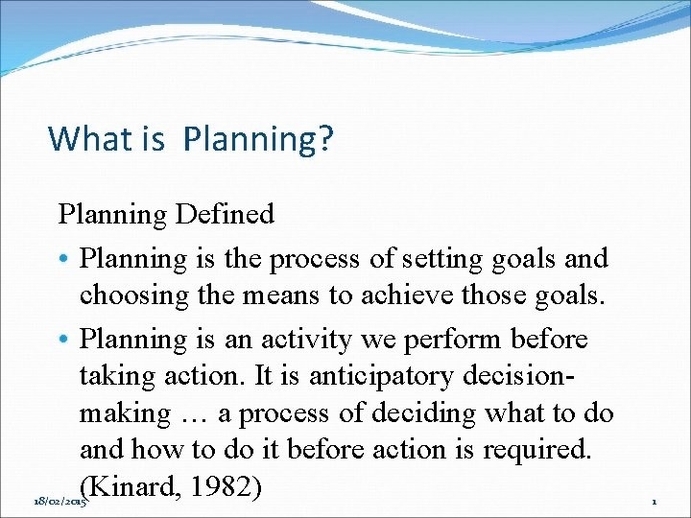
Planning is the process of setting goals, defining objectives, and developing strategies and action plans to achieve those goals and objectives. Planning is a fundamental function of management and is essential for the success of organizations, businesses, and individuals.
There are four types of planning: strategic, operational, tactical, and contingency. Each type of planning has a different scope, purpose, and level of detail.
trategic planning is defining a company’s direction and goals and allocating its resources to pursue them. It consists of analyzing the competitive environment and identifying external and internal factors that can affect the organization. Strategic planning is usually done by top-level managers and covers a long-term horizon, such as three to five years or more.
Operational planning is the process of defining specific actions and resources needed to achieve the goals set out in the strategic plan. It involves developing detailed plans and budgets to implement the strategies and tactics outlined in the strategic plan and identifying and addressing any potential risks or challenges that may arise. Operational planning is usually done by middle-level managers and covers a short-term horizon, such as one year or less.
Tactical planning is the process of breaking down the operational plan into smaller and more specific tasks and activities. It involves assigning responsibilities, deadlines, and resources to each task and activity and monitoring their progress and performance. Tactical planning is usually done by lower-level managers and covers a very short-term horizon, such as a week or a month.
Contingency planning is the process of preparing for unexpected events or situations that may disrupt the normal operations of the organization. It involves identifying potential threats or crises, assessing their impact and probability, and developing alternative courses of action to deal with them. Contingency planning is done by managers at all levels and covers a variable time horizon, depending on the nature and severity of the threat or crisis.
The importance of planning can be summarized as follows:
– It helps managers to improve future performance, by establishing objectives and selecting a course of action, for the benefit of the organization.
– It minimizes risk and uncertainty, by looking ahead into the future and anticipating possible changes and challenges.
– It facilitates the coordination of activities, by ensuring that everyone is working towards the same goals and following the same procedures.
– It enhances creativity and innovation, by encouraging managers to think critically and analytically and explore different alternatives and solutions.
– It increases efficiency and effectiveness, by reducing waste and duplication of efforts and resources and improving the quality and quantity of outputs.
The steps of planning can be described as follows:
– Define the purpose and scope of the plan, by
